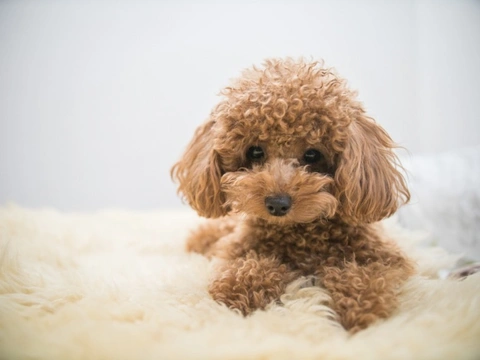
Ten things you need to know about the toy poodle before you buy one
The toy poodle is the 26th most popular dog breed in the UK overall, based on the total number of adverts for dogs of the breed placed on Pets4Homes over the last year.
When you factor in the over-240 different dog breeds and types showcased here, this goes some way towards indicating their popularity and level of demand, and they’re a good choice of small dog breed for a wide range of different types of owners.
If you’re in the market for a small dog and are thinking of choosing the toy poodle as your next pet, there are a lot of good points to the breed that certainly makes them worthy of consideration. However, toy poodles are surprisingly complex little dogs that need an understanding owner that can get the best out of them, and they’re not the right fit for every prospective puppy buyer.
If you are thinking of buying a toy poodle and want to make sure you make the right decision, this article will tell you ten things you need to know about the breed, before you commit to a purchase. Read on to learn more.
They’re the smallest poodle variant
The poodle comes in three size variants, each of which are classed as pedigree breeds in their own right and that have their own individual classes for showing, and the toy poodle is the smallest of them all. The other, larger variants are the miniature poodle and the standard poodle respectively.
Toy poodles stand between 24-28cm tall at the withers, and can weigh up to 6kg, so they are quite petite.
Toy poodles are highly intelligent
Not everyone knows that toy poodles are really smart dogs – and in fact, poodles (of all sizes) are the second most intelligent dogs in the world. Based on Stanley Coren’s ranking of canine intelligence, which is widely used as the benchmark for comparisons on a breed-by-breed basis, the poodle is second place in the intelligence stakes out of a total number of 138 different dog breeds.
They’re not actually classed as toy dogs!
Although the word “toy” is right there in the breed’s name, the toy poodle is not actually a toy dog, and is not classed within the Kennel club’s toy dog grouping, which is reserved for lapdogs and companions.
The toy poodle falls within the utility dog group, which reflects dogs that have working origins that are not covered within another specific section such as herding (pastoral) dogs, or gundogs.
Their coats are low-shedding and generally clean
Poodle coats are comprised of tightly curled and slightly wiry fur, which doesn’t tend to shed and renew very quickly. Additionally, fur that is shed is rarely dropped from the coat, instead becoming tangled up in the rest of the curls. This means that toy poodles don’t require a lot of cleaning up around the home, but also that they need regular brushing and combing to release loose hair.
They may be a good pick for allergy sufferers
The fact that toy poodles don’t shed a lot of hair means that they might be a better choice than many other dog breeds for allergy sufferers, as there is less shed hair around to carry and spread allergenic dander and proteins.
How any allergy sufferer reacts to any given dog can be hugely variable and is something that needs to be assessed on a case by case basis, but this does mean that the toy poodle might be a breed to add to your “maybe” list if you or a family member are allergic to some dogs.
…But they’re not hypoallergenic – this is a myth
One widely spread myth about poodles and other dog types with a similar type of coat is that they are hypoallergenic, and will not trigger allergies in people. However, this is untrue, and there is no such thing as a hypoallergenic dog full stop.
Toy poodles need a surprising amount of exercise
Toy poodles are small, but they’re very lively and need a surprising amount of exercise given their small size. Whilst their short legs mean that their exercise requirements are not likely to be as onerous as larger dogs with similar energy levels, the amount of exercise that toy poodles need in order to thrive is often overlooked by first-time owners.
And they can be a good pick for canine sports
The fact that toy poodles are both highly intelligent and very energetic means that they can be a good choice of dog for people looking to get involved in canine sports like heelwork and agility.
This is something that naturally varies from dog to dog, but the toy poodle is certainly one of the more appropriate small dog breeds to consider for sporting applications.
They are not necessarily good family pets
Toy poodles are not necessarily a good choice of pet if your family contains young children, as dogs of this type are small and slightly delicate, and can easily become stressed or even hurt with too much rowdiness and noisy play.
However, once again this is something that varies from dog to dog and family to family, and that needs to be considered on a case by case basis.
But they are versatile enough to suit lots of different types of homes
Toy poodles are small and so, versatile enough to fit into lots of different types of homes, from small urban apartments to large country houses. Their intelligence and other core traits also give them a broad appeal to many different types of owners – which all helps to ensure that the toy poodle is reliably one of the most popular dog breeds in the UK every year.



